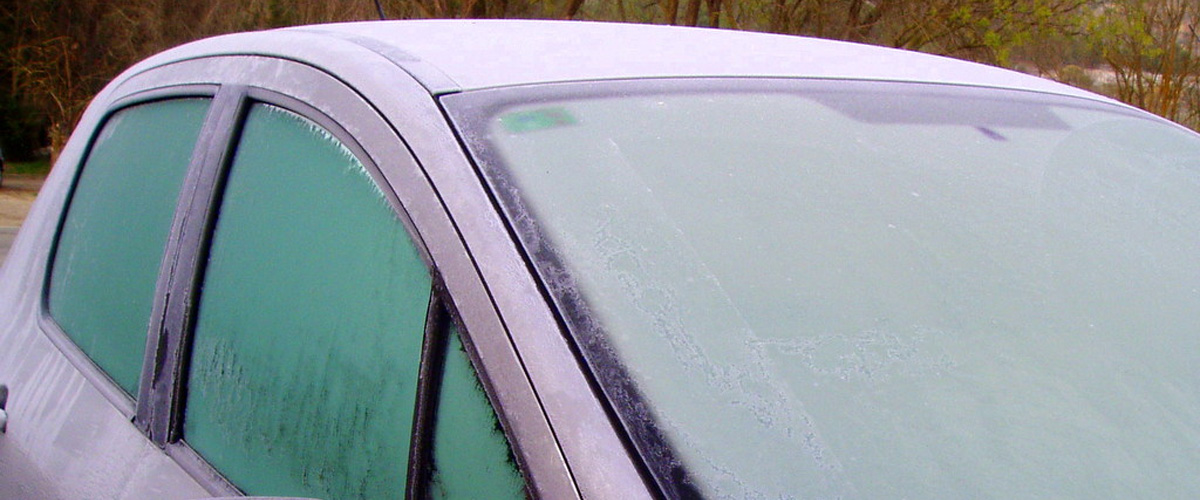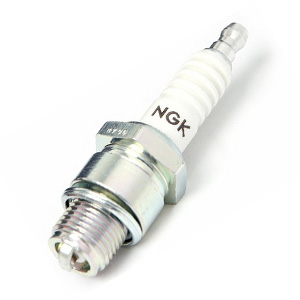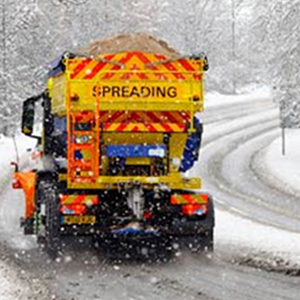The cold weather can affect your car in more ways than you might know. Here, SGS Engineering take a look at the different ways that winter can damage your car and how you can prevent this from happening.
Gas Struts
Low temperatures can affect your car’s gas struts too in a number of ways. As the temperature drops the internal pressure changes and it affects their performance – this can apply to the gas struts you have anywhere on your car, whether in your boot or bonnet. What happens is the gas inside the struts contracts in the cold and subsequently reduces the output force and makes them less effective. It may be the case that you see your boot or bonnet slowly start to drop down after you open it. On top of this, the lower temperatures can also cause the gas to leak out more, which again stops them performing as well. Second-rate and poor quality gas struts in particular can fair much worse in the cold and in extreme cases can break and stop working altogether.
SGS Replacement Gas Struts
Here at SGS we stock the UKs most extensive range of direct replacement gas struts, all designed and manufactured in the UK. If your vehicle gas struts have failed due to the cold weather and you need quality replacement struts quickly, SGS Nitrolift struts are the ideal choice; next day delivery is standard on all UK mainland deliveries and every pair of struts we provide come with a full 2 year manufactures warranty. View our range of Car Bonnet, Boot & Tailgate Gas Struts now.
Essential Winter Car Maintenance
| The Battery The battery has to work harder to start the car when it is cold because its capacity is reduced. Before winter, make sure that you have it tested for its capacity, and if it is three or four years old then you may need to consider replacing it. If you can, keep your car in a garage. | |
| Thickening Fluids In cold temperatures the fluids in your car will become thicker and more viscous, which means that they will not flow as freely. Things like oil, antifreeze, transmission fluid, etc. won’t be able to move, which means that if they are too cold they could cause issues in your car. | |
| Tyre Pressure can Fluctuate In very extreme temperatures, tyre pressure can change. When it’s cold, tyre pressure can decrease when not moving, and increase when the car is moving. Be sure to check your tyre pressure regularly, as otherwise it can shorten the life of your tyre through uneven wear and even blowout on the road. |
Windshields are Vulnerable
You should make sure that you clear your windshield before you turn on your wipers. If you don’t do this, you could cause problems to your wipers, such as torn blades and broken wiper transmissions. Take care to not allow your wipers to freeze to your windshield. While they are very durable, windshields can be vulnerable to damage. You shouldn’t use hot water on a frosted windshield as the glass could crack. The same principle applies to hot air from your car defroster.
| Spark Plug Reliability The cold weather will make your engine difficult to start anyway, so having a bad spark plug, ignition component or clogged filter will make it worse. Before winter rolls around, make sure that you check these things so that they are in tip top shape for when the temperature drops. | |
| Road Salt The effectiveness of road salt is debateable. It helps melt the snow and provides some grip on the road, but after a certain temperature and a certain amount of snowfall, it loses its effectiveness. Either way, the advice is to drive carefully. |
Make Sure You:
- Switch off things like lights, wipers, heaters, etc. before switching off your engine. This prevents any unnecessary drain on the battery when you start up.
- Avoid using heaters and heated screens for longer than you have to, to avoid putting high demands on the battery.
- Park in a garage wherever possible.
- Get your battery tested.
- Regularly check your boot and/or bonnet are opening and closing successfully.
- Get in touch with SGS regarding new and replacement gas struts should you find they’re not performing as well as they used to and we’ll find source the right options for you.
Should you warm up your Car?
If you’re warming your engine up before you start driving, then some argue that you should turn off the heaters for the interior of the car. In doing this, you make sure that all the heat energy is directed towards the engine. However, many people also need to be warm in order to drive the car, so it might defeat the object to turn the heaters off. It’s therefore up to you – it may be better for your engine to heat it up first, but most of us don’t have time to wait for the engine to heat up and then wait for the interior to heat up too.
 Low temperatures can affect your car’s gas struts too in a number of ways. As the temperature drops the internal pressure changes and it affects their performance – this can apply to the gas struts you have anywhere on your car, whether in your boot or bonnet. What happens is the gas inside the struts contracts in the cold and subsequently reduces the output force and makes them less effective. It may be the case that you see your boot or bonnet slowly start to drop down after you open it. On top of this, the lower temperatures can also cause the gas to leak out more, which again stops them performing as well. Second-rate and poor quality gas struts in particular can fair much worse in the cold and in extreme cases can break and stop working altogether.
Low temperatures can affect your car’s gas struts too in a number of ways. As the temperature drops the internal pressure changes and it affects their performance – this can apply to the gas struts you have anywhere on your car, whether in your boot or bonnet. What happens is the gas inside the struts contracts in the cold and subsequently reduces the output force and makes them less effective. It may be the case that you see your boot or bonnet slowly start to drop down after you open it. On top of this, the lower temperatures can also cause the gas to leak out more, which again stops them performing as well. Second-rate and poor quality gas struts in particular can fair much worse in the cold and in extreme cases can break and stop working altogether.



 You should make sure that you clear your windshield before you turn on your wipers. If you don’t do this, you could cause problems to your wipers, such as torn blades and broken wiper transmissions. Take care to not allow your wipers to freeze to your windshield. While they are very durable, windshields can be vulnerable to damage. You shouldn’t use hot water on a frosted windshield as the glass could crack. The same principle applies to hot air from your car defroster.
You should make sure that you clear your windshield before you turn on your wipers. If you don’t do this, you could cause problems to your wipers, such as torn blades and broken wiper transmissions. Take care to not allow your wipers to freeze to your windshield. While they are very durable, windshields can be vulnerable to damage. You shouldn’t use hot water on a frosted windshield as the glass could crack. The same principle applies to hot air from your car defroster.
